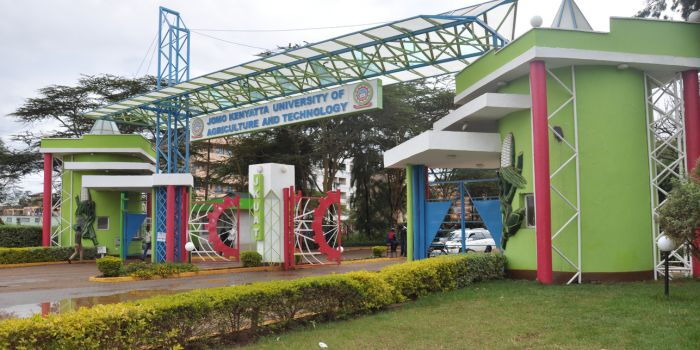Nairobi Governor Johnson Sakaja has appealed to the national government to release Ksh2 billion to sustain and expand the city’s school feeding initiative, Dishi na County, which currently supports over 316,000 pupils.
Appearing before the Senate Education Committee, Sakaja revealed that despite a prior agreement, the Ministry of Education has yet to remit its share of funds meant to co-finance the program through the school feeding fund managed at Jogoo House.
“There was an undertaking that the Ministry would match a shilling for every shilling we spend. We have already invoiced the national government Ksh2 billion, but they have not given us the money,” he said.
The Dishi na County initiative provides daily meals to learners in Nairobi’s public primary and ECDE schools at a subsidized cost of Ksh5 per meal. About one in ten children eat for free because their families cannot afford the contribution.
Sakaja affirmed that no child would be denied food due to lack of payment. “We have instructed our officers not to turn away any child who lacks the Ksh5. The county is covering the cost for them,” he stated.
Plans are underway to extend the programme to informal schools by mapping nearby public institutions where children can access meals during lunchtime. Currently, 17 central kitchens serve learners in 230 public schools across the county.
“To include all informal schools, we would require 69 additional kitchens,” Sakaja said, noting that budget constraints remain a major hurdle.
The governor also raised concern over inadequate school infrastructure in the capital, saying Nairobi’s 210 public schools cannot meet the needs of a population exceeding seven million.
“Our school infrastructure is far from adequate. Land for new schools is scarce and expensive. The county is building 1,500 ECDE classrooms while the national government is adding 5,000 more to bridge the gap,” Sakaja told senators.
He reiterated his administration’s commitment to ensuring every child in Nairobi regardless of background benefits from the feeding program. “If it were up to me, every single child in Nairobi would be part of Dishi na County, including those in informal schools,” he said.
The governor urged the Ministry of Education to prioritize Nairobi in funding allocations, warning that without additional resources, the sustainability of Dishi na County remains uncertain.







casino sites that accept paypal
References:
https://ispd.org/?post_type=dwqa-question&p=43154
us online casinos that accept paypal
References:
https://jobwiser.in/employer/best-online-casinos-australia-top-aussie-real-money-sites-2025/
online betting with paypal winnersbet
References:
https://jobsremote.work/employer/top-paypal-online-casino-list-by-luckygambler-december-2025/
online australian casino paypal
References:
cctvss1004.com
paypal casino usa
References:
https://spin.org.pk/employer/best-paypal-online-casinos-accepting-us-players-2025
gamble online with paypal
References:
cloudwapi.site
I would like to thnkx for the efforts you have put in writing this blog. I am hoping the same high-grade blog post from you in the upcoming as well. In fact your creative writing abilities has inspired me to get my own blog now. Really the blogging is spreading its wings quickly. Your write up is a good example of it.
In response to perceived moderation issues, there have been instances where players have formed “vigilante groups” to mass report predatory content and users on the platform.
Initially, the highest rating that games could be given was 13+,
although in June 2023, a 17+ rating was introduced that would permit games to feature more graphic violence, romantic themes and alcohol
usage. Voice chat was then followed by facial animations based on the real-world motion tracking of the players face,
which was announced in 2022 and released in 2023.
As of 2020, Roblox reported that more than 2 million developers used Roblox
Studio to create more than 20 million games per year. To assist in the creation of games,
Roblox Studio features multiple pre-made templates that users can modify.
Games can be created by any user through the platform’s
game engine, Roblox Studio, and then shared to and played by other
players.
By this point in the platform’s history, several games
had been played million of times. Games that were made
by the community early in the platform’s history included paintball
games, haunted houses and model trains that players could ride.
After verification, communication will be further limited to prohibit people from talking to users outside of their perceived “age group”.
Starting in December 2025 in certain territories and January 2026 worldwide, age verification will be required for all
forms of communication on Roblox, including in-game
chat (text and voice), direct messages, and joining communities.
References:
https://blackcoin.co/best-live-casinos-in-australia-2025-guide/
Still wondering what is the best online casino in Australia?
Just open your online casino account, verify you are human, head to the cashier section, choose your
method, and follow the on-screen prompts. Here are the
most common ways Aussies fund and cash out at online gambling Australia sites.
Expect lower % matches than welcome offers, with similar rules on wagering, eligible games, and bet caps.
Check the multiplier on wagering, whether it’s bonus-only or
deposit+bonus, max bet limits, and the timer to clear it.
Many of their titles are innovative slots with bonus buy options and exciting features that keep players hooked.
Baccarat is a very popular casino game among beginner players since it has very simple rules.
Websites you can find here offer state-of-the-art roulette games that come from the best software developers in the iGaming industry.
All the games you can find on our featured websites come with exceptional gameplay.
Each pokie has its own theme, reward system, and bonus games, so trying out
several of them can be really fun, as you will always be in for something different.
Whichever the case, you should know that each website
we promote has a large selection of all types of casino games,
from frequently played blackjack to less popular keno.
Australians love playing all casino games, no matter if they are based on luck or
skill.
They aren’t the best for day-to-day file storage, especially if you need to
access those files regularly, since a HDD can’t match the speeds of an SSD.
On the performance end, this drive is near the top in terms of sequential read speeds, which is essential for game loading or copy operations to a faster SSD, and copy-to-drive operations, which
you’ll need if you want to move games on and off the drive with your console or
PC’s main storage. These latter two points really hurt since file
writing and copying speeds are the two biggest factors when it
comes to an external HDD’s performance since you are far more likely to
be writing data to the drive than reading from it on a regular basis.
Performance-wise, the UnionSine Ultra Slim manages to outperform all
of the drives on this list in terms of overall read
speeds save for the Seagate Expansion, though it does have
a much longer copy time in my 25GB file copy test, and its average write speeds are much
lower than other drives. Neither does it have the lowest price per terabyte, the largest variety of
capacities available, or the best warranty of all the drives I’ve tested.
The UnionSine Ultra Slim external HDD slim design, excellent
read speeds, and attractive price-to-performance ratio
makes it a stellar choice for those on a budget.
I also used a custom script that repeatedly copies a 25GB folder with thousands of files and a deep
directory structure to the drive from a PCIe 4.0 SSD to
the drive, recording the times it took to complete the copy operations and using
the average of those times as its final result.
Look for drives with USB 3.2 Gen 2×2 USB Type-C or Thunderbolt 3 or 4 for the
fastest transfers, ensuring your computer supports these connections.
We reviewed the 6TB model and found transfer
speeds were fast enough for an external HDD, although not as quick as an SSD.
Its copy data rate is also second only to the Seagate Expansion, so moving files onto and around the drive will be fairly quick,
on balance.
In your pocket by downloading our app, giving you on-the-go access to our reviews HDDs are typically cheaper to buy than SSDs for the same amount of
storage. Need to know 1TB size tested, preformatted to exFAT, weight
50g (1TB model), dimensions (L x W x H) 10 x 5.5 x
0.9cm, other colours available, five-year warranty Need to know 1TB size
tested, preformatted to exFAT, weight 44g (1TB model), dimensions (L x
W x H) 7 x 5 x 1.1cm, other colours available, three-year warranty
References:
https://blackcoin.co/casino-winning-odds-best-and-worst-games-chances-to-win/
Australian players can use various payment methods including Visa/Mastercard, Neosurf,
and cryptocurrencies like Bitcoin, Ethereum, Litecoin, and Tether.
Comprehensive account restrictions from 24 hours to 3 years, with additional support measures for serious gambling concerns.
Manage gaming time with customizable session limits and reality checks that remind you how
long you’ve been playing. Set daily, weekly, or monthly limits on deposits and losses to maintain control over your gaming budget and prevent overspending.
King Billy Casino prioritizes player safety and well-being
above all else, recognizing that gaming should remain an enjoyable form of entertainment rather than a source of financial stress.
Understanding that questions and concerns can arise at any hour,
the casino ensures round-the-clock support with knowledgeable representatives who are familiar
with the specific needs of Aussie gamblers.
In case you are not decided yet, King Billy casino makes a good launch pad for your online casino gaming career.
The opportunities at King Billy are just more than enough and it all
narrows down to which type of games appeal to
you as a player. At times, it can be very frustrating
when you are stuck at one point during your online casino
gaming sessions. To ensure an enriching gaming experience,
the casino has numerous software providers working with it.
This review looks at the critical aspects that makes King Billy casino a perfect hub for
online casino gaming. The games here include blackjack, roulette, baccarat, poker as well as virtual casino.
References:
https://blackcoin.co/malina-casino-australia-your-ultimate-gaming-destination/
Nachteilig bei Casinos ohne deutsche Lizenz kann unter Umständen sein, dass diese
bisweilen keinen eigenen deutschen Support haben. Online Glücksspiel ist naturgemäß international aufgestellt und Ihr könnt bei einer Vielzahl von Online
Casinos in Deutschland spielen. Wir können also keine Garantie dafür übernehmen, dass ihr bei allen Plattformen, die keiner deutschen Lizenz unterliegen, auch alle aufgelisteten Vorteile genießen könnt.
Online Casinos ohne deutsche Lizenz bieten für Nutzer dieser Seiten sehr viele Vorteile aber auch ein paar nicht zu unterschätzende Nachteile.
Online Casinos ohne deutsche Lizenz, sind wie schon in der Einleitung erwähnt, nicht an die neue
Glücksspiellizenz vom Sommer 2021 gebunden.
Die deutsche Glücksspiellizenz der Gemeinsamen Glücksspielbehörde der Länder gibt es erst seit 2021.
Wir haben euch eine Anleitung erstellt, mit der ihr sofort im Online Casino
ohne Lizenz aus Deutschland spielen könnt. Streng genommen bringen diese sogar mehr Erfahrung mit als die
deutschen Amtskollegen. Im Folgenden seht ihr, bei welchen deutschen Online Casino Anbietern wir besonders gute
Erfahrungen sammeln konnten. Casinos ohne deutsche Lizenz bieten bessere
Auszahlungsquoten, höhere Boni und keine Einschränkungen.
Ein PayPal Casino ohne deutsche Lizenz gibt es also nicht.
Hier geht es um Alternativen, Stichwort „Skrill Einzahlung“ im Casino ohne deutsche Lizenzen. Es darf
mit einer breiten Auswahl an Zahlungsmitteln in einem
Casino ohne deutsche Lizenz gerechnet werden.
References:
https://online-spielhallen.de/stake-casino-deutschland-eine-umfassende-bewertung-fur-spieler/
Regelmäßige Spieler im Winspirit Casino erhalten oft
spezielle Codes, je nachdem, wie viel sie spielen. Winspirit Casino
bietet häufig zeitlich begrenzte Boni an, beispielsweise am Wochenende mit doppelten Freispielen oder plötzlichen Cashback-Erhöhungen. Sie können die gesamte Palette an Spielen spielen, ohne jemals die sichere, €-basierte Umgebung unserer vertrauenswürdigen Marke zu verlassen.
Die Spielbibliothek, bestehend aus Titeln von über 90 anerkannten Entwicklern, bietet eine breite Palette
an erstklassigen Spielen. Kunden werden mit einem attraktiven Willkommensbonus
von 500 € begrüßt, und die Treue wird durch wöchentliche
Cashback-Programme sowie ein ausgereiftes Treueprogramm honoriert.
Leon Casino hei\\u00dft neue Spieler mit einem Willkommensbonus von bis zu 500
\\u20ac willkommen.
Wir empfehlen dringend, in lizenzierten Casinos zu spielen, die
von bekannten Online-Glücksspielaufsichtsbehörden wie der Regierung von Curacao, der Malta
Gaming Authority und der britischen Glücksspielkommission zugelassen sind.
In einem Online Casino zu spielen sollte Spaß machen. Sie können kostenlos und zum Spaß spielen –
kein Download, keine Registrierung und keine Einzahlung.
World Casino Expert ist eine moderne Spieleseite mit kostenlosen Casino-Glücksspielen.
References:
https://online-spielhallen.de/legiano-casino-bewertung-ausfuhrlicher-testbericht-eines-erfahrenen-spielers/